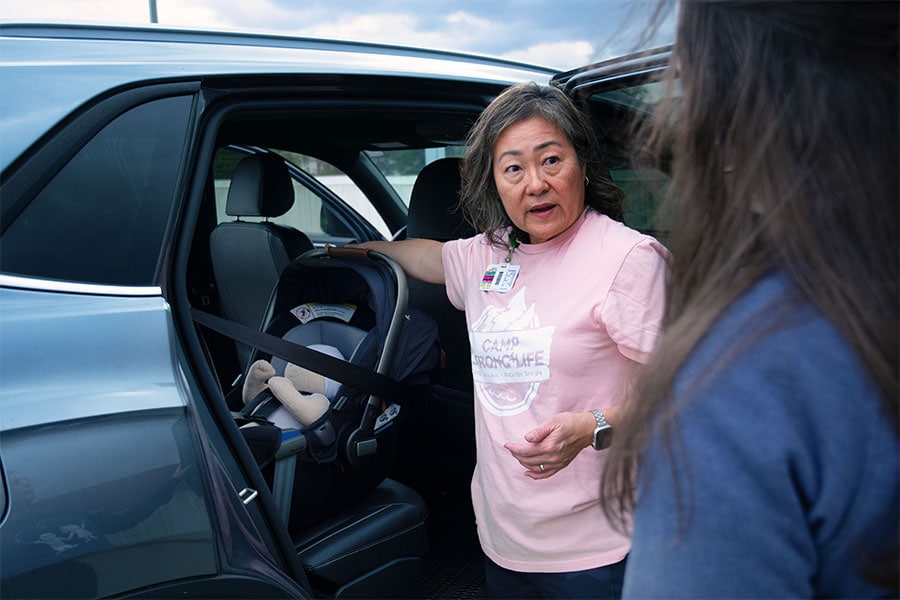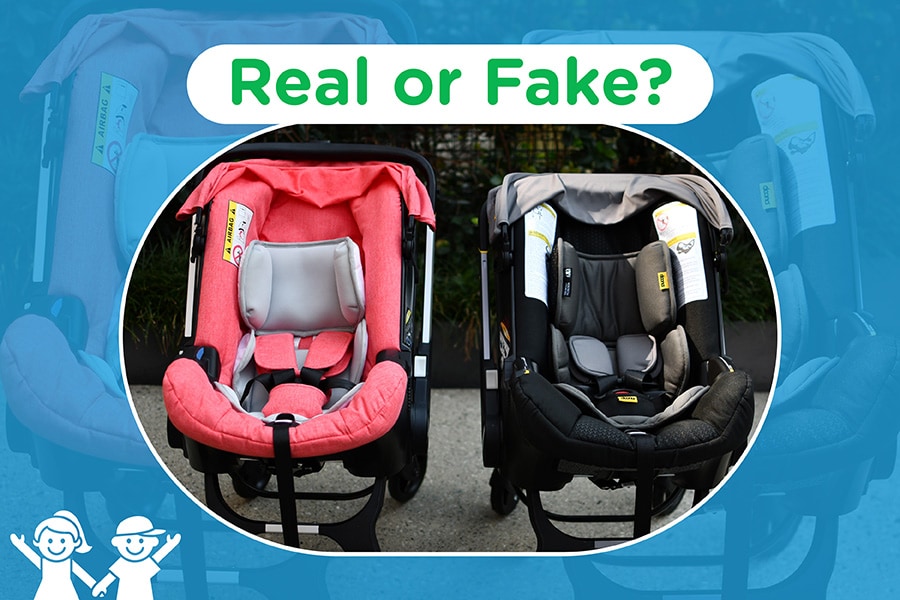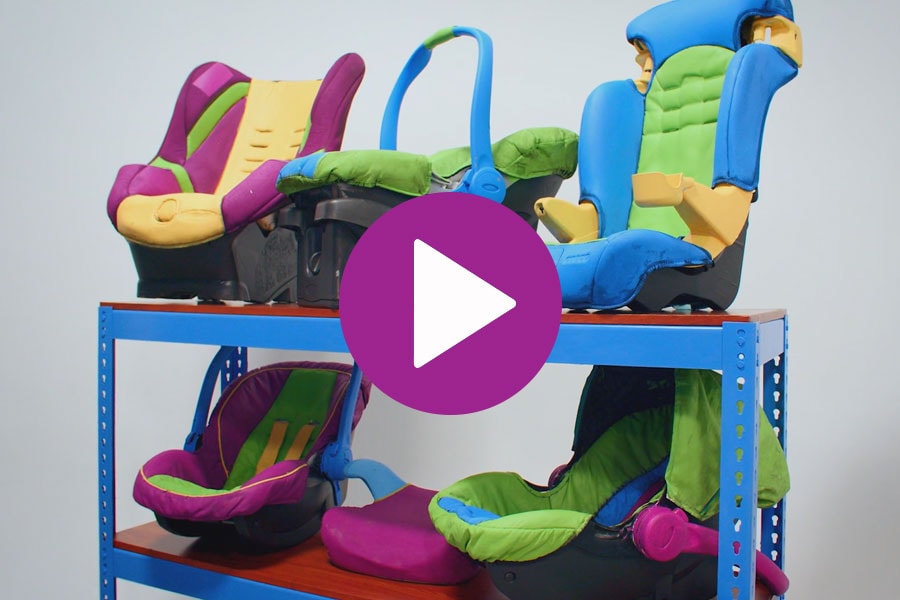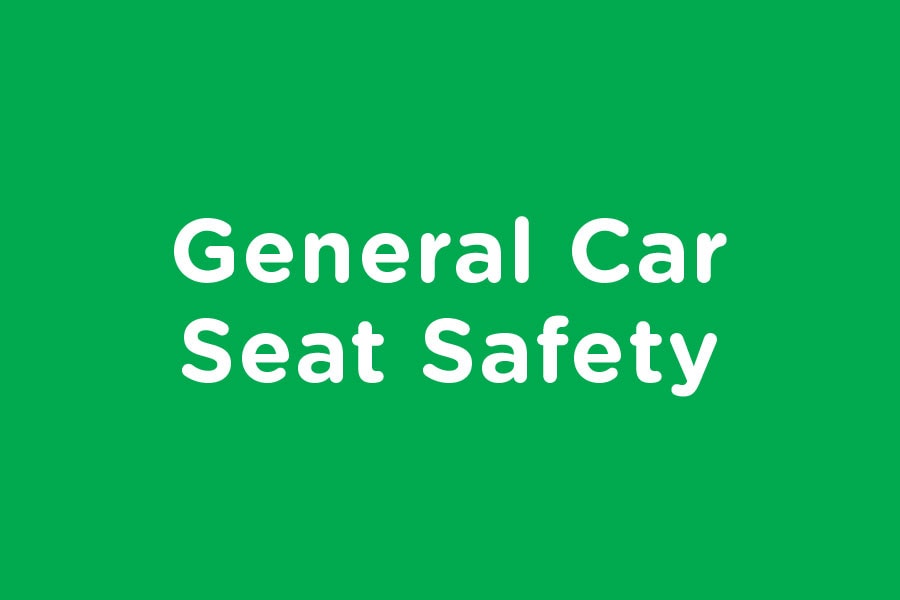What is a CPST?

Research shows a child is involved in a car crash every 33 seconds. Fortunately, car seats help reduce the risk for injury in a crash by more than 70%—if they’re used and installed properly. So, how can you be sure your child’s safety restraint is installed correctly? Try talking to a certified child passenger safety technician (CPST).
In this article:

What is a CPST?
A child passenger safety technician, or CPST, is a certified car seat expert who provides car seat assistance to families in their area.
All CPSTs complete a course and continuing education designed by the National Highway Traffic Safety Administration (NHTSA), the National Child Passenger Safety Board and Safe Kids Worldwide. In their training, CPSTs learn how to:
- Properly use and install car seats according to the manufacturers’ instructions
- Secure car seats using the appropriate anchor system for each combination of car seat and vehicle
- Empower caregivers to properly use and install their child’s car seat
Your community CPST can help you understand how to use and install your car seat, know when your child is ready to transition to the next type of car seat and talk to you about manufacturer recalls and passenger safety laws in your area. Their assistance is typically provided free of charge, but the knowledge they share about your child’s safety is priceless.
Where can I find a CPST?
While anyone can become a CPST, most do because they’re passionate about health and safety. It isn’t surprising that many CPSTs are injury prevention professionals, firefighters, police officers, EMTs and nurses.
So, where can you find a CPST? While each community is different, many public safety agencies such as fire departments, emergency services, public health departments and large mother-baby medical facilities have CPSTs on staff. You can sign up for a car seat check, or a one-on-one car seat demonstration with a CPST at these locations.
Your local children’s hospital may also have certified CPSTs on staff who can help if your child has suffered an injury or illness that requires a specialized car seat. The hospital’s CPSTs will help you acquire the right one and teach you how to use it correctly.
Find a certified child passenger safety technician near you.
Our CPSTs answer your most common car seat questions
Do all car seats have to pass a car seat safety check?
Car seat safety checks are different from car seat safety regulations. A safety check can be performed by your local CPST to ensure your car seat is properly installed and used. These are not required by law, but are strongly recommended to ensure your child is as safe as possible when riding in a vehicle.
Now let’s look at safety regulations. Federal regulations ensure that all car seats manufactured in the U.S. pass stringent safety tests before they’re sold. These regulations hold manufacturers to an incredibly high standard when it comes to materials, anchor systems and height and weight capacities. Manufacturers are also legally required to share certain types of safety information with you. Since these regulations are set by the U.S. government, car seats manufactured and approved for sale overseas may not meet the same safety standards set in the U.S. In fact, some car seats sold online are actually knock-offs of trusted brands and do not comply with U.S. safety regulations. Learn how to spot a counterfeit car seat to ensure that yours is safe.
Is there a fire station car seat installation near me?
It’s true that many fire stations have CPSTs on staff, but your local CPST may be located somewhere else in your community. Check the Safe Kids Worldwide national directory to find a certified CPST near you.
When do car seats expire? Is it illegal to use an expired car seat?
All car seats have an expiration date because the materials used to make them wear down over time. The weakened materials can cause the car seat to fall apart in a crash, leading to injury, or even death. In some cases, the expiration date may be printed on the car seat itself, but you may have to calculate the expiration date on your own.
It’s up to each manufacturer to let you know when its car seats expire. The life span of your car seat will be listed in your manual and is usually between 6 and 10 years from the date of manufacture. Per U.S. law, the date of manufacture must be printed on the car seat itself, either on a stick-on label, or imprinted directly onto the plastic shell. (It may be on the back or underside of the car seat.) Add your car seat’s life span to the date of manufacture to determine if it has expired. If you can’t find that information, or have any questions, you can call the manufacturer directly or contact your local CPST for assistance.
Your child’s car seat may expire immediately if it is involved in a collision. This is because the materials can break or weaken from the impact of a major crash. Severe damage, like obviously broken pieces, may be easy to see. Other issues may be hidden, but are just as dangerous. If your car seat was involved in a collision, call the manufacturer. They’ll use the details of the crash to determine if the seat is safe to use. Whenever possible, we recommend replacing a car seat after a collision to ensure that your child is as safe as possible.
While there are currently no federal or Georgia state laws making it illegal to use an expired car seat, using one could lead to severe injury or death in a crash. If your car seat has expired, replace it as soon as possible.
Get more expert advice on keeping kids safe in the car.
If your child has an injury, or is showing signs of illness, call your doctor or visit an urgent care center. If your child has a life-threatening injury or illness, is having trouble breathing or is unconscious, call 911 and/or visit an emergency department immediately.




